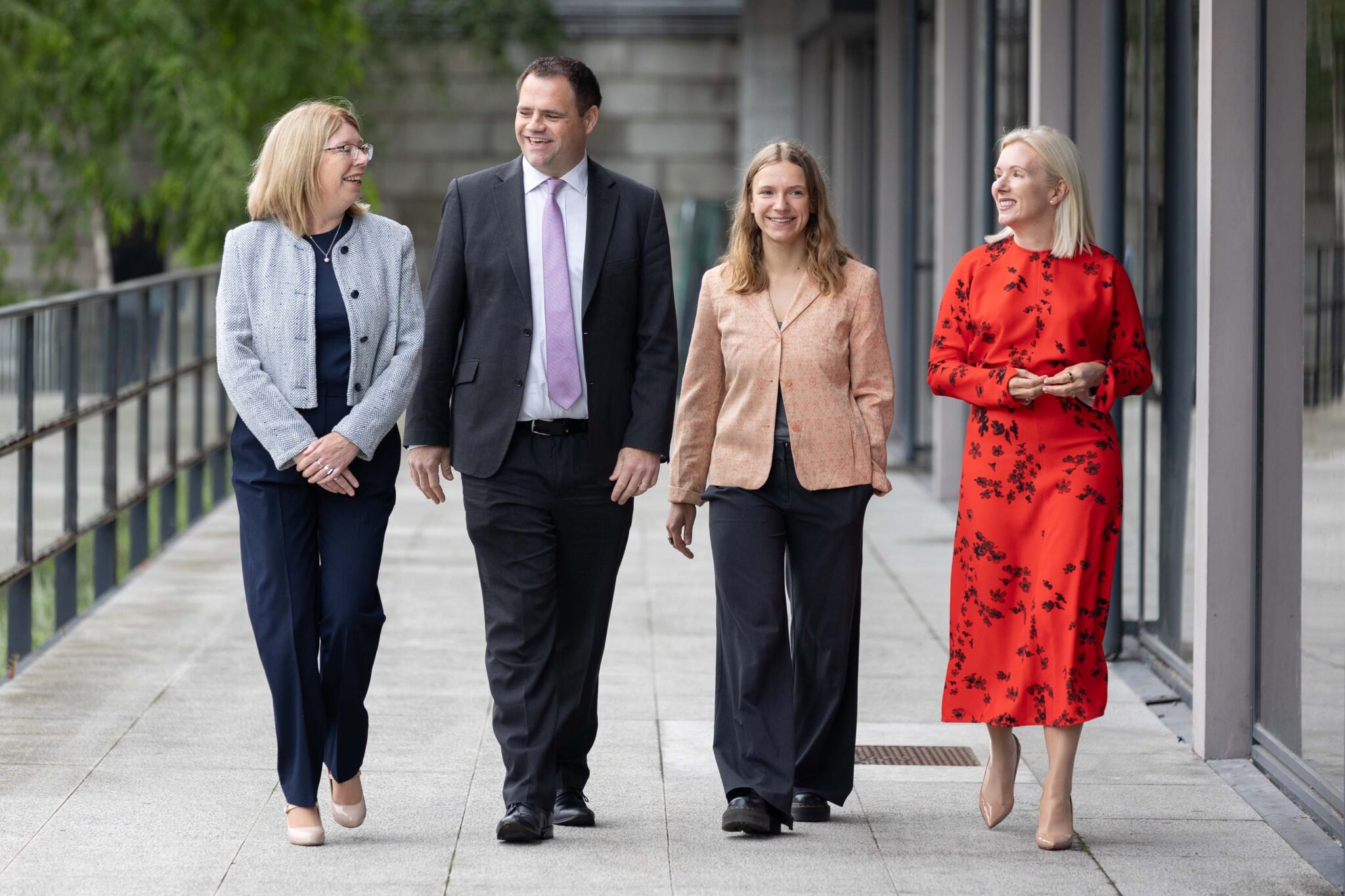BPFI recognises that trust in the Irish retail banking sector has been damaged in recent years. We fully recognise that the reputation of banks has been badly affected by what has happened. Reputation can only be restored by hard work, accountability and by rebuilding on a step by step approach. There is no quick fix to this. Repairing reputations requires not just words or speeches – it requires tangible actions in the here and now. For the Irish banks much work needs to be done.
A trustworthy, efficient and sustainable banking industry is essential for the functions of our society and for the wider economy. But it’s also essential for the 28,000 people who work in the domestic banking sector – which represents about 40% of the entire Financial Services industry in Ireland.
People who work in banking, have a legitimate expectation that their job and their work is recognised as being important to Ireland and its economy.
We welcome the CBI’s proposal to introduce a new Individual Accountability Framework, which arose from recommendations contained in its report on “Behaviour and Culture of the Irish Retails Banks” (published in July 2018).
A robust corporate governance framework enhanced by the introduction of the Individual Accountability Regime – is something that will be good for Ireland and good for the banking industry here. We as in industry want to make it work.
The Individual Accountability Framework contains four elements:
- New Conduct Standards for individuals, senior managers and businesses.
- Enhancement to current fitness and probity regime “ to strengthen the onus on firms to proactively assess individuals in controlled functions on an on-going basis”.
- A unified enforcement process that will apply to all contraventions by firms or individuals of financial services legislation.
- A Senior Executive Accountability (SEAR).
The initial introduction of SEAR will focus on a sub-set of financial services being – Credit institutions, Insurance undertakings and Investment firms.
BPFI made a submission to the Department of Finance (October 2018) and again at our appearance before the Oireachtas Committee on Finance, Public Expenditure and Reform (March 2019). On each occasion, we welcomed the CBI’s report and its proposals.
New SEAR regime – some questions/ observations
- In introducing an enhanced accountability regime, we have to be careful not to instil a culture of blame, a balance must be achieved.
- Proportionality is essential in financial regulation ( it is a key feature of all EU financial regulation). We shouldn’t lose sight of proportionality in the introduction of SEAR.
- As always, it is worth stating that culture is about people and we want to attract the right calibre of people with integrity and talent. We do not want to lose good senior people, but should rather reassure them that engaging in positive and appropriate behaviours will result in compliance with SEAR.
- Clarification around how executive versus non-executive roles will be essential.
- Financial institutions will need to have a sufficient amount of time to implement the proposed changes and senior-level officers will need to be able to address some key questions, including:
- What does the CBI expect of me?
- What is the scope of my regulatory responsibilities? How do I best fulfil my regulatory duties?
- To what extent can I be held accountable for the actions/ failures of others?
- How will the CBI ensure that there is a common approach to SEAR?
These are the types of questions which senior-level officers are likely to raise, and we hope will be clarified by the CBI, in the draft regulations.
BPFI hopes to engage in a meaningful, practical way with the CBI to ensure that SEAR works well in practice and can be effectively implemented.
UK’s Senior Managers’ Regime – “lessons learned”
When it was introduced in 2016, UK firms were concerned about increased bureaucracy and a fear/ failure of senior managers to make decision, without documenting every step involved in making the decision.
It is generally acknowledged, that most firms recognise the benefits of the regime and that many of its elements codify good governance structures that a well-run firm should have in place as a starting point.
It is also apparent that there was and continues to be good and meaningful engagement between UK firms and the UK regulator. This engagement means that firms and the UK regulator are very proactive in dealing with any issues or in providing guidance to make sure that the accountability regime is fit for purpose. In our view that example of engagement between regulator and industry is crucial in understanding how the new accountability regime works.
Statements & Management Responsibility Maps
The requirement to produce Statements of Responsibilities and Management Responsibility Maps identified areas where there was a lack of clarity around who was responsible/ accountable.
I think it would be useful for the CBI to provide guidelines and examples of what it considers to be an appropriately detailed Management Responsibility Map. In the UK, at times, there was a significant variation from firm to firm as to what was considered to constitute a Responsibility Map. We believe that a consistent approach across the industry is crucial for the success of SEAR.
Shared Responsibilities
In the UK, where responsibilities are shared or divided, it must be clearly explained in the relevant Statement of Responsibilities (and Responsibilities Map, where relevant). In general, where responsibilities are shared, each Senior Manager will be jointly accountable for those responsibilities, in the UK.
The UK regulator refers to responsibilities which can be “shared but not split”. This means both senior managers are equally responsible for the Senior Management Function they share – and firms cannot allocate individual responsibility for particular tasks. This situation could arise where a job-share arrangement exists or where there are “co-heads” of the same function. For example, some investment firms have co-Chief Investment Officers and if sufficiently senior within the firm, they could both hold SMF 6 (Head of Key Business Area).
In Ireland, certain decision making is the shared responsibility of a governance forum/ committee. Subject to there being clarity around an individual’s responsibilities as to what he/she is accountable for, clarity should be sought that this current practice will continue to be acceptable, provided that robust governance and management oversight is in place.
The importance of explaining what is involved in a role, its responsibilities and the accountability arising for the role is crucial. An individual must be clear on both of these elements and consent, in a meaningful manner.
UK’s Reasonable Steps Defence
BPFI’s members have expressed concerns about the reference to “all reasonable steps” in the CBI’s report.
In the UK the standard is one of “reasonable steps” and has worked well in the UK.
Considerations to which the UK Regulator is likely to have regard to include:
- the role and responsibilities of the senior manager ( primarily by reference to her/ his Statement of Responsibilities);
- whether the Senior Manager exercised reasonable care when considering available information;
- whether the senior manager reached a reasonable conclusion on which to act;
- the nature, scale and complexity of the firm’s business, and
- the knowledge the senior manager had, or should have had (considering, among other factors, the length of time she/ he has been in the role and handover arrangements to those new in the role), of regulatory concerns, if any, relating to their role and responsibilities.
It is not clear why the CBI has proposed that the standard of “all reasonable steps” rather than “reasonable steps” be adopted. This standard of “all reasonable steps” may have unintended consequences, given that it could create an impossible burden of proof on an individual.
We make these initial points as a means of being helpful to the ongoing debate on SEAR.






